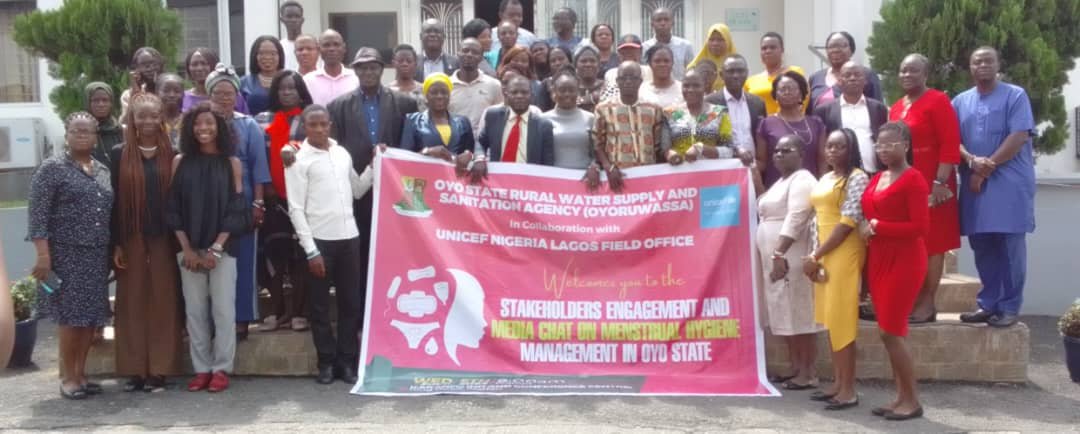In an effort to address the lack of basic sanitation services in schools and promote menstrual hygiene, the Oyo State Government, in collaboration with UNICEF, has emphasized the importance of raising awareness about the dangers associated with unhygienic practices among girls.
The Oyo State Rural Water Supply and Sanitation Agency, with support from UNICEF Nigeria, organized a one-day Menstrual Hygiene Management Stakeholders and Media Chat in Ibadan, the capital of Oyo State, to advocate for increased attention to this issue. The event aimed to shed light on the challenges faced by girls, such as the initial experience of menstruation, feelings of shame, fear, and stigmatization, as well as physical discomfort such as loss of appetite, increased body temperature, or mood swings.
Dr. Emmanuel Orebiyi, the Water Sanitation and Hygiene Consultant for UNICEF’s Lagos field office, spoke about the theme of the event, “Making Menstruation a Normal Fact of Life by 2030.” He highlighted the fact that 91.4% of Schools lack disposable mechanisms for Menstrual waste hygiene, and less than 1% of schools provide menstrual hygiene materials, such as free pads.
To effectively manage menstruation, girls and women require access to water, sanitation, and hygiene (WASH) facilities, as well as proper disposal of menstrual pads.
This necessity was emphasized by Dr. Orebiyi and other stakeholders at the event.
Aderonke Akinola-Akinwole, the UNICEF Communication for Development Specialist, emphasized the importance of building a community that supports and changes the narrative for young people. This includes addressing misconceptions and providing timely information about menstruation.
Mr. Adegoke Ayodele, the Director for Community Mobilization and Hygiene Education at the Oyo State Rural Water Supply and Sanitation Agency, stated that the event aimed to debunk myths surrounding menstruation, disseminate accurate information to the public, improve the knowledge of both students and teachers regarding menstrual hygiene, and promote action on menstrual health.
Representatives of civil society organizations (CSOs), including Pastor Olusegun Adio, stressed the timeliness of the event and urged stakeholders to take the information seriously. Pastor Adio highlighted that due to nutritional factors, many primary school girls now experience early menstruation. He called on mothers to pay attention to their children’s needs and provide them with the necessary information and support.
Other stakeholders emphasized that poor personal hygiene can lead to infections and stressed the importance of proper disposal of menstrual pads. They also highlighted the negative consequences of a lack of information about menstruation, which can result in damaging misconceptions and cause girls to miss out on normal childhood experiences.
The overall objective of the event was to normalize menstruation and ensure that it is addressed effectively as part of everyday life by 2030.

